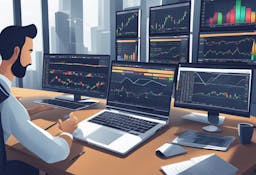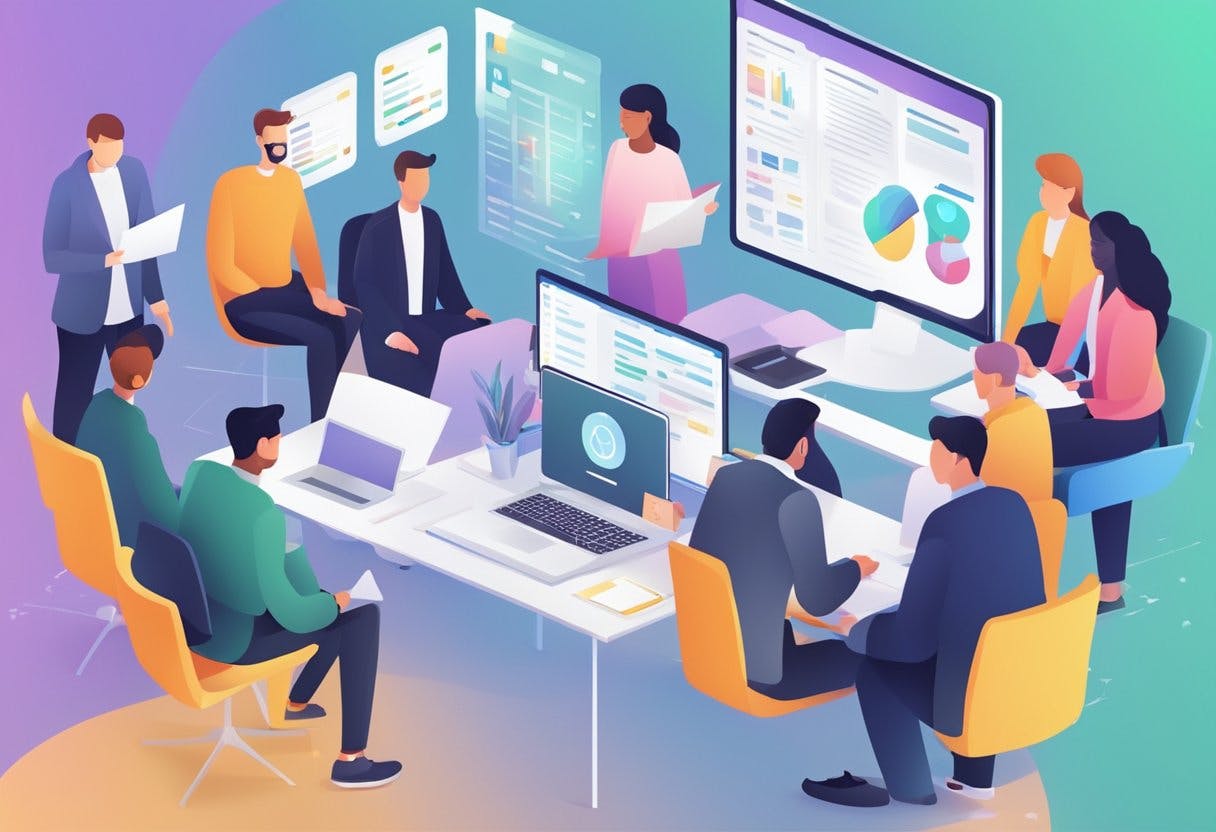
Decentralized Autonomous Organizations (DAOs) are a new form of corporate structure that has emerged in recent years. DAOs are unique in that they are not controlled by a central authority or hierarchy, but rather operate based on a set of rules encoded in smart contracts on a blockchain. This allows for a more democratic and decentralized decision-making process, as well as increased transparency and accountability.
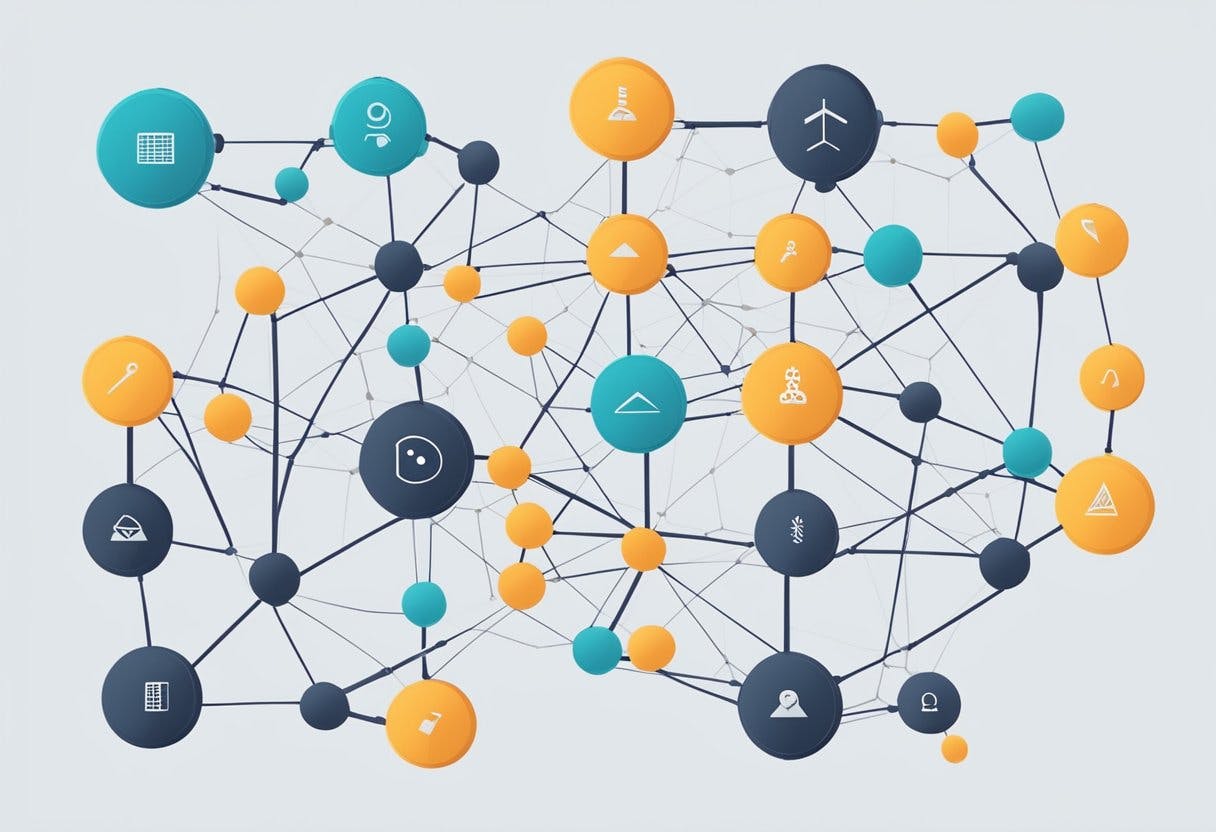
The foundations of DAOs lie in blockchain technology, which allows for secure and decentralized record-keeping and transactions. This technology, along with the use of smart contracts, enables DAOs to function autonomously and independently of traditional corporate structures. DAOs have the potential to revolutionize the way organizations are structured and governed, and could lead to a more equitable and democratic business landscape.
Key Takeaways
- DAOs are a new form of corporate structure that operate based on a set of rules encoded in smart contracts on a blockchain.
- Blockchain technology and smart contracts enable DAOs to function autonomously and independently of traditional corporate structures.
- DAOs have the potential to revolutionize the way organizations are structured and governed, leading to a more equitable and democratic business landscape.
Foundations of DAOs
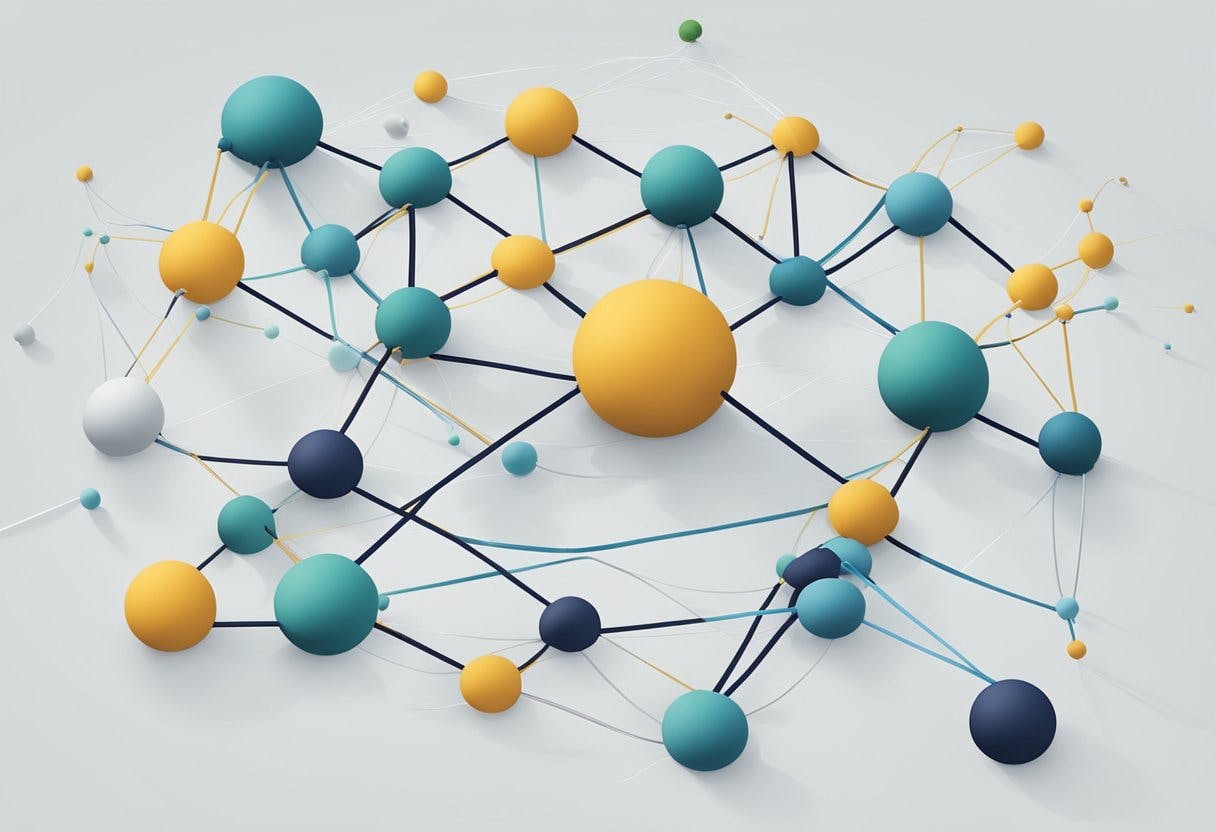
Decentralized Autonomous Organizations (DAOs) are a new form of collective organization in the digital era. They are usually related to the use of blockchain technology, which ensures decentralization. DAOs rely on smart contracts to define their functioning rules and their operation.
Blockchain Technology and Smart Contracts
Blockchain technology is the foundation of DAOs. It is a decentralized, distributed ledger that records transactions in a transparent and secure way. Smart contracts are self-executing contracts with the terms of the agreement between buyer and seller being directly written into lines of code. Smart contracts enable the automation of the DAO’s operations, ensuring that the rules of the organization are followed.
Governance and Autonomy
DAOs are governed by their members, who hold governance tokens that allow them to vote on proposals and elect representatives. The governance structure of a DAO is designed to be transparent, democratic, and decentralized. Members have autonomy over their contributions to the organization, and they can leave or join the DAO at any time.
Legal and Regulatory Landscape
The legal and regulatory landscape for DAOs is still evolving. In the United States, Wyoming has been at the forefront of creating a legal framework for DAOs. The state has enacted laws that recognize DAOs as a legal entity and provide clarity on the tax treatment of DAOs. However, the Securities and Exchange Commission (SEC) has warned that DAOs may be subject to securities laws, depending on their structure and activities. As such, DAOs must be careful to comply with securities laws and regulations.
Overall, DAOs represent a new era of corporate structure that is decentralized, transparent, and democratic. While the legal and regulatory landscape is still evolving, DAOs have the potential to transform the way organizations are governed and operated.
DAOs in Practice

Decentralized Autonomous Organizations (DAOs) are a new and innovative way of organizing a business that relies on blockchain technology and smart contracts. DAOs are designed to be transparent, reliable, and autonomous, and they offer a number of advantages over traditional corporate structures. In this section, we will explore how DAOs work in practice, including case studies of ConstitutionDAO and CityDAO, the role of DAOs in venture capital, and the challenges and limitations of DAOs.
Case Studies: ConstitutionDAO and CityDAO
ConstitutionDAO and CityDAO are two of the most well-known examples of DAOs in practice. ConstitutionDAO was created to purchase a copy of the US Constitution at auction, while CityDAO was created to fund the development of a new city in the desert. Both DAOs relied on the contributions of their members to raise funds and make decisions, and both were successful in achieving their goals.
ConstitutionDAO raised $47 million in just five days, making it one of the largest crowdfunding campaigns in history. CityDAO, on the other hand, raised $22 million in just two weeks. Both DAOs relied on the transparency and reliability of blockchain technology to ensure that their members’ contributions were secure and accounted for.
DAOs and Venture Capital
DAOs are also becoming increasingly popular in the world of venture capital. Venture capitalists are beginning to see the potential of DAOs as a way to democratize the investment process and give more power to individual investors. DAOs can also help to reduce the costs of fundraising and streamline the decision-making process.
For example, the venture capital firm Andreessen Horowitz recently launched a $2.2 billion DAO fund, which will be managed by a group of DAO members. The fund will allow individual investors to pool their resources and invest in promising startups, while also giving them a say in the decision-making process.
Challenges and Limitations
While DAOs offer a number of advantages over traditional corporate structures, they also face a number of challenges and limitations. One of the biggest challenges is ensuring that DAOs are truly autonomous and not controlled by a small group of individuals. Another challenge is ensuring that DAOs are transparent and accountable to their members.
DAOs also face limitations when it comes to legal and regulatory frameworks. Many countries do not yet have clear laws and regulations governing DAOs, which can make it difficult for them to operate legally. Additionally, DAOs may not be suitable for all types of businesses, particularly those that require a high degree of centralization and control.
Overall, DAOs represent a new era of corporate structure that has the potential to revolutionize the way we think about business. While they face challenges and limitations, their transparent, reliable, and autonomous nature makes them an exciting prospect for the future of business.
Technological and Economic Impacts
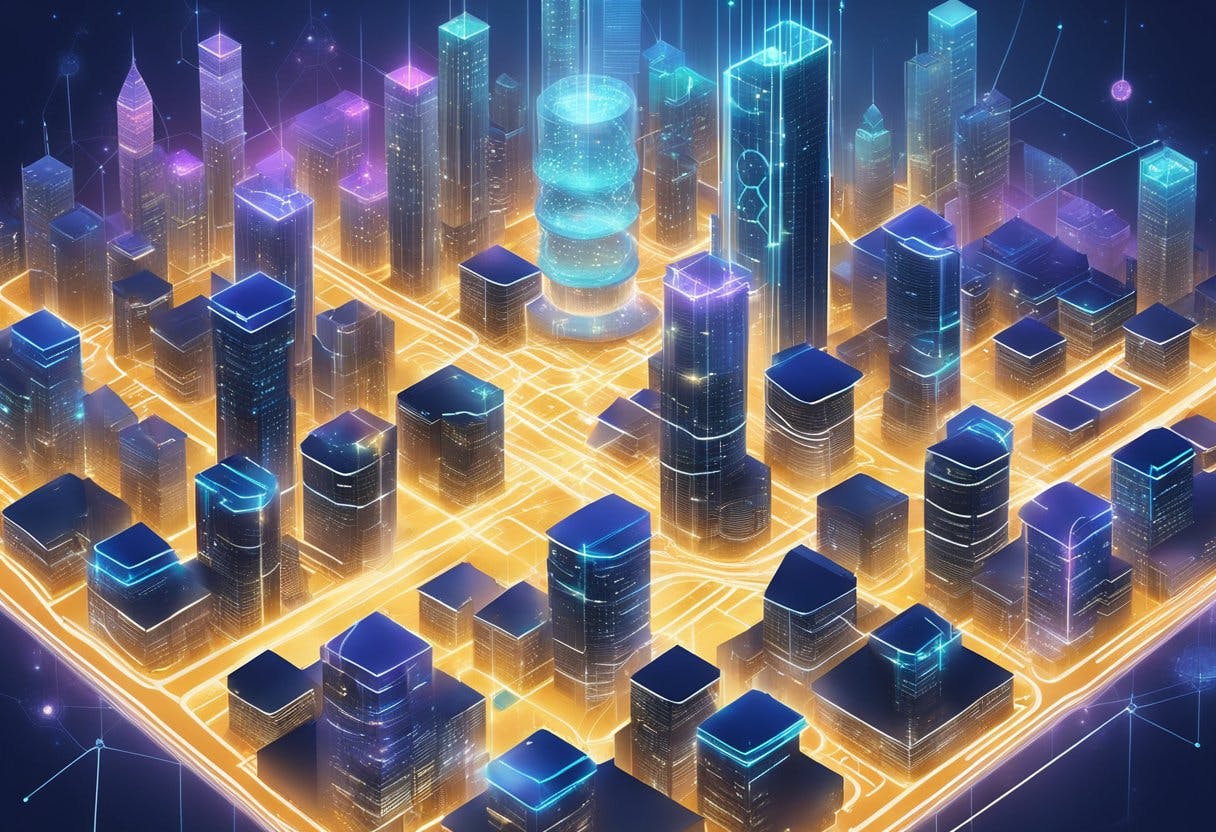
Decentralized Finance (DeFi) and DAOs
One of the most significant impacts of DAOs is their association with Decentralized Finance (DeFi). DeFi is a financial system built on blockchain technology that is decentralized and operates without intermediaries. It uses smart contracts to provide transparency, security, and immutability. DAOs are an essential component of DeFi, as they are used to manage and govern decentralized financial protocols.
Ethereum is a popular blockchain platform that powers many DeFi protocols and DAOs. Ethereum’s smart contract functionality allows developers to create decentralized applications that can execute code autonomously. This capability has led to the emergence of DAOs, which are self-governing entities that operate on the Ethereum blockchain.
Innovations in Organizational Economics
DAOs are also driving innovations in organizational economics. They are challenging traditional hierarchical organizational structures by introducing a new model of decentralized governance. DAOs rely on community-driven decision-making and use token-based incentives to align the interests of all stakeholders. This approach creates a more democratic and transparent organizational structure that is not dependent on a central authority.
DAOs also introduce new forms of collaboration and coordination. They enable individuals from around the world to come together and work towards a common goal without the need for a centralized intermediary. This approach is particularly useful for global projects that require the participation of individuals from different jurisdictions.
Impact on Traditional Corporate Structures
The rise of DAOs has significant implications for the global corporate landscape. Traditional organizational structures are often hierarchical and centralized, with decision-making power concentrated in the hands of a few individuals. DAOs, on the other hand, are decentralized and community-driven, with decision-making power distributed among all stakeholders.
DAOs challenge the traditional corporate model by introducing a more democratic and transparent approach to decision-making. They also provide a new model of ownership that is not dependent on a central authority. This approach creates a more equitable distribution of power and wealth, which can lead to a more sustainable and fair corporate structure.
In conclusion, DAOs are driving technological and economic innovations that have significant implications for the global corporate landscape. They challenge traditional hierarchical organizational structures and introduce a new model of decentralized governance. DAOs are an essential component of DeFi and are driving innovations in organizational economics.
DAOs and Community
Decentralized Autonomous Organizations (DAOs) are unique in that they are built on the foundation of community. Collaboration and collective decision-making are two concepts that are essential to the successful operation of a DAO.
Collaboration and Collective Decision-Making
A DAO is a collective organization that is governed by its members. Members can be shareholders, managers, or any other individuals who are interested in the organization’s success. The decentralized nature of DAOs allows for a more democratic decision-making process, where every member has a say in the organization’s direction.
The use of smart contracts ensures that the rules of the organization are transparent and enforced. Members can vote on proposals, and the results are recorded on the blockchain, making the process transparent and tamper-proof.
Social DAOs and Democratic Governance
Social DAOs are DAOs that are specifically created to address social issues. These DAOs are governed by democratic principles and aim to create a more equitable society.
Democratic governance is an essential aspect of social DAOs. Members have a say in the organization’s direction, and decisions are made through a democratic process. This ensures that the organization’s goals align with the interests of its members and the broader community.
Overall, DAOs are a new era of corporate structure that emphasizes community and democratic decision-making. Collaboration and collective decision-making are essential to the success of a DAO, and social DAOs are an excellent example of how DAOs can be used to address social issues.
The Future of DAOs
As blockchain technology and decentralized systems continue to evolve, the future of Decentralized Autonomous Organizations (DAOs) is becoming increasingly promising. DAOs have the potential to revolutionize the way organizations operate, by enabling a more democratic and decentralized approach to decision-making.
One of the key advantages of DAOs is their ability to operate autonomously, without the need for intermediaries or centralized control. This is made possible through the use of smart contracts, which are self-executing contracts with the terms of the agreement between buyer and seller being directly written into lines of code.
As the use of cryptocurrencies and non-fungible tokens (NFTs) continues to gain momentum, DAOs are well-positioned to take advantage of these technologies. For example, DAOs can be used to manage and distribute NFTs, as well as to facilitate the creation and management of new cryptocurrencies.
In addition, the decentralized nature of DAOs makes them highly resistant to censorship and control. This is because they rely on consensus mechanisms, such as proof of stake or proof of work, to validate transactions and ensure the integrity of the system.
As software development continues to advance, DAOs are likely to become even more sophisticated, with new features and capabilities being added over time. For example, DAOs could be used to manage complex supply chains, or to facilitate the creation of new decentralized applications.
Overall, the future of DAOs looks bright, with the potential to transform the way organizations operate and interact with each other. As blockchain technology and decentralized systems continue to evolve, DAOs are likely to become an increasingly important part of the corporate landscape.
Frequently Asked Questions
What are the defining characteristics of a DAO?
A Decentralized Autonomous Organization (DAO) is a digital organization that operates through blockchain technology. It is a self-governing entity that operates based on a set of pre-determined rules encoded into smart contracts. The defining characteristics of a DAO include decentralization, transparency, and autonomy. DAOs are designed to operate without the need for intermediaries, such as banks or governments, and are governed by their members.
How does a DAO differ from a traditional corporate structure?
DAOs differ from traditional corporate structures in several ways. First, DAOs are decentralized and operate on a peer-to-peer network, while traditional corporations are centralized and hierarchical. Second, DAOs are transparent, with all transactions and decisions recorded on a public ledger, while traditional corporations are opaque. Finally, DAOs are autonomous, with decisions made by the members through a consensus mechanism, while traditional corporations are governed by a board of directors.
Can you provide an example of a functioning DAO?
One example of a functioning DAO is MakerDAO, a decentralized lending platform that uses a stablecoin called DAI. MakerDAO operates through a smart contract system that allows users to deposit collateral and borrow DAI. The platform is governed by MKR token holders, who vote on proposals and changes to the system.
What is the primary purpose of establishing a DAO?
The primary purpose of establishing a DAO is to create a self-governing organization that operates transparently and autonomously. DAOs are designed to operate without intermediaries, allowing for more efficient and cost-effective decision-making. Additionally, DAOs can provide a way for communities to come together and collaborate on projects or initiatives.
In what ways are DAOs potentially transforming the concept of LLCs?
DAOs are potentially transforming the concept of Limited Liability Companies (LLCs) by providing a new way for businesses to operate. DAOs offer a more transparent and decentralized approach to business, allowing for greater participation and collaboration among members. Additionally, DAOs can offer greater efficiency and cost savings compared to traditional LLCs.
How does community governance work within a DAO?
Community governance within a DAO is typically based on a consensus mechanism, where members vote on proposals and changes to the system. The governance structure of a DAO can vary, with some DAOs using a one-token-one-vote system, while others use a reputation-based system. DAOs can also have multiple layers of governance, with some decisions made by token holders and others made by a core group of members.
Read More
